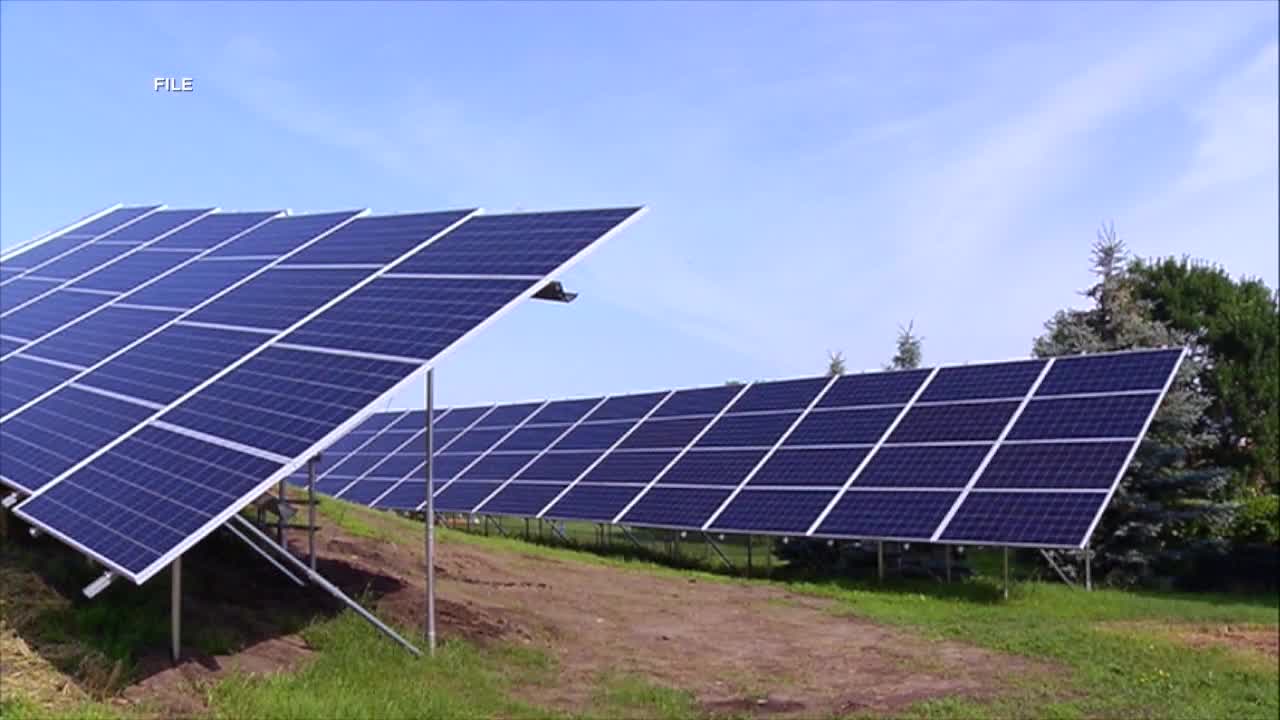Minnesota Senate passes bill for new energy standards
UPDATE 2/3/23: The Minnesota Senate has passed a bill that would require all energy produced in Minnesota to be carbon-free by 2040.
The final vote of 34-33 came just before midnight Thursday night.
According to the legislation, all electrical utilities would be forced to generate electricity with carbon-free resources. They must be 80% carbon-free by 2030 and 100% carbon-free by 2040.
The bill would also essentially eliminate the burning of fuels such as coal and natural gas to produce electricity.
It allows some exceptions if reliability and consumer electrical rates become an issue.

It’s a bill many republicans opposed because of concerns about electrical grid problems in extreme heat or extreme cold when demand peaks.
They’re also worried about its impact on energy costs.
“This blackout bill is gonna hurt us in many, many ways. I have personally watched what my electric bill has done the last number of years. It’s been going up, up, up. And that is unfortunately just the beginning,” said state senator Paul Utke (R-Park Rapids).
However, mandating clean energy is an issue DFL members say voters wanted when they elected DFL candidates to a majority in both the House and Senate.
“We reject the politics of scarcity. We reject the politics of fear, of doubt that ‘well, oh, we can’t do this.’ The seniors in my district want a future for their grandchildren. I promise you that,” said Sen. Jennifer McEwen (DFL-Duluth).
Following the bill’s passing, Republicans and DFL members were quick to respond, and issued statements:
“The Blackout bill passed by Democrats tonight will lead to higher costs, less reliable energy, and could very well put people’s lives at risk. Senate Republicans tried to amend the bill with our A+ Energy Plan to keep our affordable, reliable energy available without increasing costs, but predictably, Democrats weren’t interested in compromise. Again, we see a party-line vote on an extreme bill that was rushed through the process.”
Senate Minority Leader Mark Johnson (R-East Grand Forks)
“By putting Minnesota on the path to produce 100 percent carbon-free electricity by 2040, we continue to o the work the people of Minnesota called on us to get done this session. Climate change is already threatening the health and economic well-being of our state, and University of Minnesota scientists tell us that Minnesota is one of the fastest-warming states in the nation. This bill will not only cut our state’s carbon emissions, it will also restore Minnesota’s leadership in clean-energy jobs and bring environmental justice considerations in the regulatory process. It’s a major and transformative step in our transition toward a clean-energy future.”
Senate Majority Leader Kari Dziedzic (DFL-Minneapolis)
The bill now heads to Gov. Tim Walz’s desk. He is expected to sign the legislation into law.
An earlier version of this report can be found below.
INITIAL REPORT: The Minnesota Senate is on the verge of passing new energy standards for Minnesota electrical utilities that Republicans strongly oppose. Democrats who control the Senate say climate change is among the reasons Minnesota voters put them in the majority in the Senate and House.
“This is what the people want,” said bill author Sen. Nick Frentz, DFL-North Mankato. “This bill will help us eliminate carbon emissions. Carbon emissions are the number one threat to our planet and they’ve been rising.”
The bill would force electrical utilities to generate electricity using carbon-free resources. They would have to be 80% carbon-free by 2030 and 100% carbon-free by 2040. The bill would essentially eliminate the burning of fuels like coal and natural gas to produce electricity.
The bill does have exceptions for utilities to appeal to the Public Utilities Commission for waivers from the standards if reliability or rates become an issue. Utilities can also purchase “energy credits” to meet the standard.
Two newly-elected Minnesota Senators who used to be TV meteorologists voiced their support for the bill.
“The first day I’m speaking on the Senate floor is Ground Hog Day which is a meteorologist’s least favorite holiday,” said Senator Robert Kupec, DFL-Moorhead, before adding why he thinks climate change is real, “Seven of the last ten years have been the warmest in Minnesota on record.”
Fellow former meteorologist, Sen. Nicole Mitchell, DFL-Woodbury, agreed.
“It is clear that since the industrial age and human intervention that humans are changing our climate,” she said.
Republicans didn’t engage in the climate change debate, but do question the impact the bill will have on the reliability of the electrical grid and the cost of consumer electrical bills.
“Before you today is the Minnesota blackout bill,” said Sen. Andrew Mathews, R-Princeton, calling it by the name Republicans use to describe what might happen to the electrical grid on extreme cold or extreme warm days “The bill that will increase the chance of putting more Minnesotans at risk with not only the reliability of the grid and the energy production we do here in Minnesota but also increase the cost.”
Several Republican amendments that would have modified the bill were rejected by the DFL majority.
After debating the bill for a couple hours early Thursday afternoon the Senate recessed for committee hearings and resumed the Senate floor debate just after 5:30 p.m.